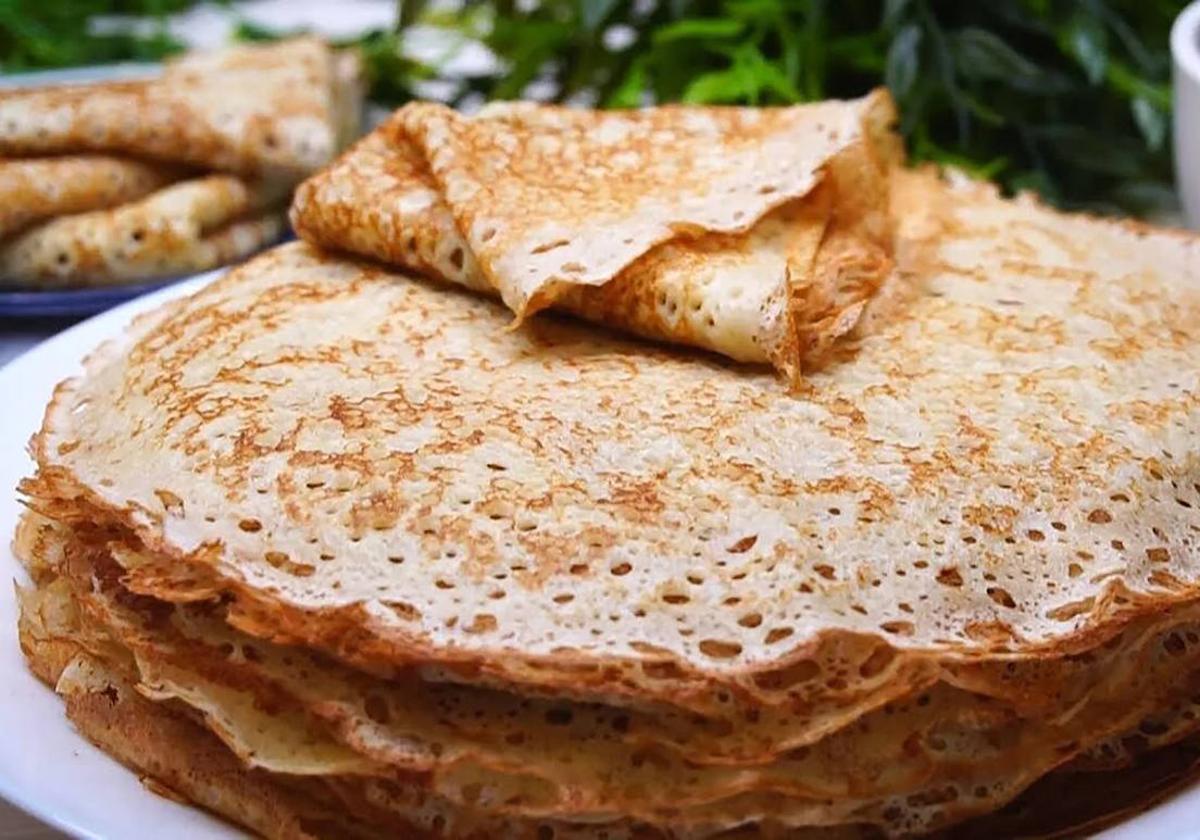

Secciones
Servicios
Destacamos

As carnival celebrations take over streets and venues across Spain and many other countries over the coming days in the run-up to Lent, the British will be engaging in the more reserved art of making pancakes.
The Western Christian and Greek Orthodox festive celebrations take place during the period known in the United Kingdom as Shrovetide, and on Shrove Tuesday (21 February this year), the age-old tradition of pancake tossing will take place in numerous households around the country.
The tradition of tossing the pancake goes back to at least the seventeenth century, although the origins of the pancake, or flapjack, as they are known in the USA, or crêpes in much of Europe, goes back to Ancient Greece.
The Greeks called them tagénias, which derives from the word for frying pan, and the earliest attested references of them appeared in the works of the 5th-century BCE poets, Cratinus and Magnes. These were made with wheat flour, olive oil, honey and curdled milk.
The Romans called their version 'alia dulcia', Latin for other sweets, although these were much different to the pancakes we know today.
The word pancake, from Middle English, appears in modern English in the 15th century. English pancakes tend to be sweet, not savoury, and are usually unleavened, or do not use a raising agent in the mix. However, the USA's recipe for flapjacks typically uses baking powder to create a fluffy, thicker style of pancake.
The batter for a traditional English pancake is made with plain flour, eggs and a mixture of milk and water, although there are several techniques used to achieve the best results.
Of course, as with all recipes, chefs and cooks will all have their own rules, such as sifting the flour and leaving the batter to chill before use. One of the golden rules is to use a heavy-based frying pan not more than seven or eight inches in diameter (18-20 cm).
Another tip is to make the pancakes as thin as possible, although this takes some practice.
However, there are no golden rules concerning what you top or fill them with; whether this is simply lemon juice and sugar or any variety of fresh or dried fruits, and a good dousing of Grand Marnier.
200ml milk mixed with 75ml water
2 large eggs
110g plain flour
1 tablespoon melted butter or margarine
pinch of salt
Begin by sifting the flour and salt into a mixing bowl, making sure to keep the sieve high above the bowl. Next, crack the eggs into the flour and whisk. Once all the flour and eggs have been incorporated, gradually add the milk and water, whisking the whole time until the batter is smooth. Then add the melted butter and whisk again.
This batter does not need to stand, although if it is not to be used immediately, make sure to give a good whisk before using.
Lightly grease a frying pan (preferably a heavy-based pan) with a little butter or oil and get it hot: then turn down the heat to simmer and add a small quantity of the batter, swilling it around the pan until the base is evenly covered. If the pancake is thin enough, it should only take around 45 seconds to cook and they will not need to be cooked on the other side: if you have used a little too much batter, then toss (if confident) or flip the pancake over with a palette knife to cook the other side for a further 20 seconds.
Pancakes do not keep well and are best eaten immediately: if one needs to keep them warm while cooking the remainder of the batch, then put them on a plate covered with foil (or another plate) on top of a pan of simmering water. sfsfs
Noticia Patrocinada
Publicidad
Clara Alba y José A. González
Juan Cano, Sara I. Belled y Clara Privé
Encarni Hinojosa | Málaga
Esta funcionalidad es exclusiva para suscriptores.
Reporta un error en esta noticia
Comentar es una ventaja exclusiva para registrados
¿Ya eres registrado?
Inicia sesiónNecesitas ser suscriptor para poder votar.